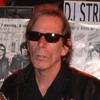
Advertisement
I talked to Bobby about 20 years ago, when I was doing the original interviews for Please Kill Me. He was a delight to interview. As he recounted how "96 Tears" came to be a hit single, his enthusiasm, naïveté, and sheer love of rock ‘n’ roll was completely infectious. Bobby told his story so well I could just imagine him walking the single to record shops and radio stations, hoping against hope that somebody would notice it. Sort of like how That Thing You Do might have been if the theme were one of the greatest rock songs ever written.His recollections are below, starting with his childhood in a Mexican community in Saginaw, Michigan.MEXICANSThere was kind of a big Mexican-American population in Saginaw, because a lot of migrant workers came up here and worked on the farms. General Motors built a big plant up here in the 40s or 50s. When the migrant workers found out they could get hired at GM without a high school education, they got jobs and settled in. That’s what my dad and my oldest brother did, and that’s how we settled here.There wasn't a lot of us at our high school, maybe six or seven Mexican-American students, so that was a little rough. Even so, everybody was pretty nice; it was more that a lot of the social clubs were prejudiced. After we started the band, they wouldn’t let us play their clubs. We couldn’t play in them because we were Mexican, you know? That was a weird thing, but then we got so big so quickly we didn’t want to play them!
Advertisement

Advertisement
Advertisement
Advertisement
Advertisement
Advertisement

Advertisement
Advertisement
